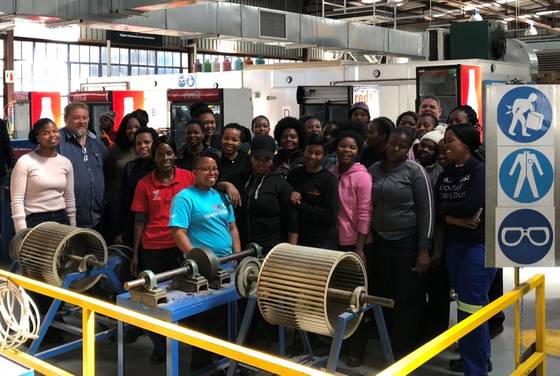The GCI newsletter team reached out to interview Grant Laidlaw. He is the director of the Air Conditioning and Refrigeration Academy (ACRA) and in charge of all business activities, training, assessment, qualification and career development, liaison with industry and government at the training academy. He says about his work: "I love what I do!" We wanted to know a little bit more!
Mr. Grant, could you give us a brief insight into your work and your own path in the RAC sector?
The responsibility of transferring skills to young people enabling them to become productive members of society lies with myself and all training providers. In this way, we can improve the standard of living for our people and increase the quality of services offered by our industry.
My path into industry was initially spurred on by opportunity, which I recognised and acted upon. Our diverse industry and its interesting people became a passion from which I grew the training academy. Needless to say: I love what I do.
You are very committed to the empowerment of women in the RAC sector. It is no secret that especially the cooling sector is a male-dominated profession. How would you describe the current situation and possible changes in recent years?
Yes, this is a male dominated industry. Ten years ago, there were no or very few female refrigeration engineers and technicians. In South Africa there has been some change in this regard. In our profession, we have seen some movement as woman have joined their male counterparts. At technician level, we see a more significant shift.
We currently have 32 woman on an apprenticeship project. This is a wonderful initiative and is funded by the Health and Welfare SETA (opens in a new window) (Sector Education Training Authority). The project was initiated and is managed by the Air Conditioning and Refrigeration Academy in South Africa. 2018 has seen a total of 58 woman undergoing training at the Air Conditioning and Refrigeration Academy.
What is your concrete commitment to the empowerment of women?
In setting up projects of this nature, we typically allocate fifty percent of the positions available to woman. We arrange worksites for the women to gain the necessary workplace experience and ultimately write the qualifying trade test. We monitor their progress on a monthly basis whilst at workplaces and assist where necessary.
What are the main challenges you face concerning women in the RAC sector?
The major challenge is perception. Second to perception will be resistance to change. The perception is that this is a man's world. This in turn results in a reluctance to take on woman apprentices. How will the ladies perform? Should we take a chance and take on a woman apprentice?
Having trained many woman to final trade test I can say to industry: The ladies perform very well, both at the training center and at the workplace, in some cases better than the men. You are not taking a chance when taking on a woman as an apprentice.
What measures do you think could help to get women interested in the RAC sector and electro-technical professions?
Make it attractive, promote the RAC sector and electro-technical professions to the schools, showcase the woman who succeed, show the industry that the ladies are up to the task. Show the woman themselves that they can succeed and make a career in the RAC sector and electro-technical professions.
Thank you very much for your commitment - Any final words?
Let us empower the ladies!

